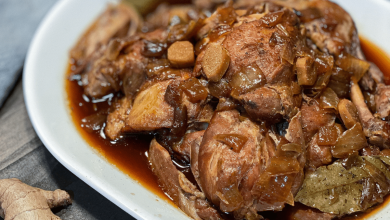Apricot Wine
🍑🍷 Apricot Wine: A Delectable Delight 🍷🍑
Apricot wine is a delightful beverage made from the juicy, sweet, and aromatic apricot fruit. It has a rich history, tantalizing components, and a fascinating preparation process. Let’s dive into the world of apricot wine!
📜 History:
The origins of apricot wine can be traced back to ancient China and Armenia. Apricots are believed to have been cultivated for over 4,000 years, with some of the earliest mentions of apricot wine dating back to Chinese dynasties. In Europe, apricots and their wines gained popularity during the Roman Empire. The fruit’s Latin name, Prunus armeniaca, reflects its association with Armenia. Over the centuries, apricot wine has evolved and spread to different parts of the world.
🍑 Components:
- Apricots: Naturally, the star ingredient is apricots. Choose ripe, sweet, and juicy ones for the best results.
- Sugar: Sugar is added to sweeten the wine and facilitate fermentation.
- Water: Water is used to dilute the apricot juice and create the right alcohol content.
- Yeast: Yeast is essential for fermentation, converting the sugar into alcohol.
- Acid: Acid, often in the form of citric acid or lemon juice, is added to balance the flavors and create acidity.
🍷 Preparation Steps:
-
Gather Ingredients: Collect ripe apricots, sugar, water, yeast, and acid.
-
Cleaning and Crushing: Wash the apricots thoroughly, remove the pits, and crush them to extract the juice. You can use a food processor or simply mash them.
-
Mix Sugar and Water: In a separate container, dissolve sugar in warm water to create a sugar syrup. Allow it to cool.
-
Combine Ingredients: Combine the apricot juice, sugar syrup, yeast, and acid in a fermentation vessel. Mix well.
-
Fermentation: Seal the vessel with an airlock to allow carbon dioxide to escape while preventing oxygen from entering. Allow the mixture to ferment for about 1-2 weeks. The exact time depends on various factors, including temperature and yeast activity.
-
Racking: After the initial fermentation, transfer the wine to another container, leaving behind any sediment. This process, called racking, helps clarify the wine.
-
Aging: Let the wine age in a cool, dark place for several months to develop its flavor.
-
Bottling: Once the wine is clear and tastes to your liking, it’s time to bottle it. Use sterilized bottles and corks or caps.
-
Cellaring: Store the bottled wine for at least several months to a year, allowing it to mature further.
🕒 Time Needed:
The total time required to make apricot wine can vary, but it generally takes several months to a year for the wine to mature to its best flavor. The initial fermentation takes about 1-2 weeks, but the aging process is where the magic happens. The longer you can resist sipping it, the better the wine will become.
So, there you have it! Apricot wine, a historical and delectable beverage that’s well worth the wait. 🍑🍷 Enjoy crafting your very own apricot wine adventure!
Certainly! Here’s the nutrition facts and health information for apricot wine:
🥤 Nutrition Facts (per 5 oz serving):
- Calories: Approximately 105 kcal
- Carbohydrates: Approximately 5.5 grams
- Sugars: Approximately 3 grams
- Protein: Negligible
- Fat: Negligible
🍑 Health Information:
-
Vitamins: Apricot wine contains small amounts of vitamins such as vitamin C, vitamin A, and various B vitamins. Vitamin C is an antioxidant that supports the immune system and skin health, while vitamin A is essential for vision and skin health.
-
Minerals: It contains trace amounts of minerals like potassium, which is important for heart health, and small amounts of calcium and magnesium.
-
Alcohol Content: Apricot wine, like other alcoholic beverages, contains alcohol. It’s essential to consume it in moderation. Excessive alcohol consumption can have adverse health effects, including liver damage, addiction, and an increased risk of accidents.
-
Antioxidants: Apricots are rich in antioxidants, and some of these antioxidants may carry over into apricot wine. Antioxidants help protect cells from damage caused by free radicals and may have potential health benefits.
-
Moderation: While moderate alcohol consumption may have certain health benefits, excessive consumption can lead to various health issues, including addiction, liver disease, and an increased risk of certain cancers. It’s crucial to enjoy apricot wine responsibly.
Please note that the nutritional content of apricot wine can vary depending on the specific recipe, sugar content, and fermentation process used. As with any alcoholic beverage, it’s best to enjoy it in moderation as part of a balanced lifestyle.








